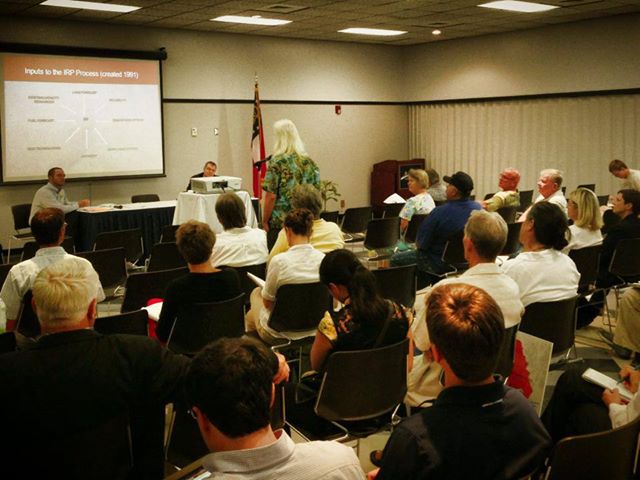Getting an earful across the state about that proposed solar rate hike: Georgia Power and the Georgia Public Service Commission, first in Savannah, then in Columbus.
Mike Owen wrote for the Ledger-Enquirer 21 October 2013, Georgia Public Service Commission: Public decries Georgia Power rate hike, solar power fee,
A crowd of about 50 people gave Georgia Public Service Commission Chairman Chuck Eaton an earful Monday night concerning a proposed Georgia Power rate hike and controversial proposal to charge solar power users a new fee.
At a public hearing in the auditorium of the Coca-Cola Space Science Center, Eaton heard several audience members call the rate hike “bad business practice” and “unconscionable,” while calling the solar proposal “a step backward” and a “disincentive” for modern, clean technology.
At issue is a two-pronged proposal before the PSC. Georgia Power is asking the commissioners to approve a $482 million rate hike that would add almost $100 a year to average residential electric bills, said Seth Gunning, an organizer for the Sierra Club of Georgia, one of the meeting’s sponsors. It [Georgia Power] is also asking the PSC to allow it to levy a fee on those who install solar panels on their homes or businesses.
The story continues with Continue reading









